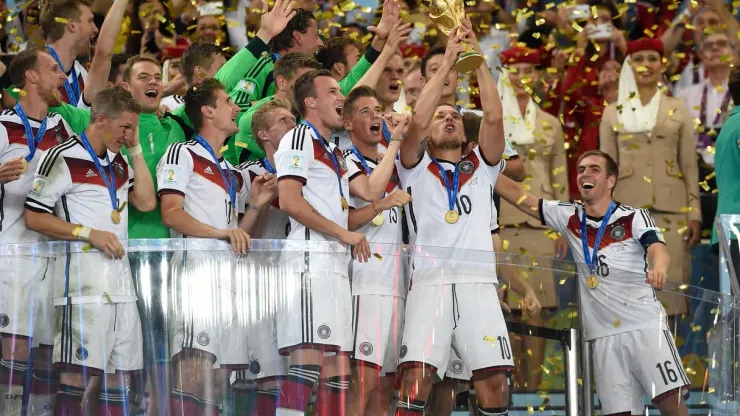After winning the 2014 World Cup, the German national team is far from resting on its laurels. With Tuesday’s spirited performances in the UEFA Champions League by Wolfsburg and Borussia Monchengladbach, as well as Bayern Munich winning their group, a new generation of German national team talent — particularly in the midfield — has begun to impress at the Bundesliga level. The German domestic league, which is among the best in the world, has become a proving ground for so many talented young German players who aspire to join the national team. The league has also integrated players from the German youth setup into its top clubs.
Youngsters get an early start in the Bundesliga setup. Schalke 04, especially, has set the pace by integrating eight players in the last three seasons from the club’s youth academy into the first team. The club has remained a relevant Bundesliga and European force despite consistently playing younger players during this period.
Last week, World Soccer Talk visited Germany and spent time at both Schalke 04 and Bayer Leverkusen, two of the clubs on the cutting edge of developing this next generation of German talent. Both clubs have a long history of developing young players – in fact, Leverkusen was the first professional club for Claudio Reyna and Landon Donovan, arguably the two best US field players of all-time. But in that era, youth systems throughout Germany were not vertically integrated and players were developed for the benefit of the club only. Today, these clubs serve as a proving ground for the next generation of German stars, perhaps even the next crop of world champions.
In the era following “Das Reboot”, Germany’s vertical integration of systems throughout the country has resulted in a unified playing style and unique understanding between players even at rival clubs. This superior team focus has allowed Germany to emerge as world champions while the Bundesliga, which was widely thought to have fallen from the top European leagues a decade ago, is now once again considered among the world’s best – if not the outright best by many objective observers of the game.
Bayer Leverkusen’s Julian Brandt is one of the top young German wingers. Along with contemporaries Leroy Sane and Max Meyer of Schalke (both first team regulars now at the ages of 19 and 20 respectively), Brandt represents the new generation of attacking midfield talent in the German national team setup.
Brandt, at 19, has already made over 50 first team appearances for Leverkusen to go along with a similar number of caps for the German youth national teams. He’s on the cusp of a call-up to the senior team. He told World Soccer Talk that making the full German National Team would be “very hard competition, but with a young player like Leroy Sane it is possible. But it is important to be at a good level with the club then that makes it (easier) to move up to the national team.”
Sane and Meyer both have a real opportunity to make Joachim Löw’s squad for the Euro 2016 tournament this summer in France. Schalke’s unique youth setup and academy campus, which includes housing for players in a more homely manner as well as facilities among the best in the modern game, have allowed stars like Sane and Meyer to thrive professionally as soon as they graduate from the youth ranks.
SEE MORE: Despite positives, Bundesliga faces uphill climb in the United States
With the quality of the Bundesliga youth teams and the German youth national team rapidly growing, it’s very competitive. Brandt told us “competition against other guys at his age at a high level makes (me) better,“ “and that has prepared me for the Bundesliga which is one of the toughest leagues in the world.”
For those hoping Germany’s rise to the top of the global game was simply the bi-product of the most recent “golden generation” of German players, a new wave of talented youngsters with significant professional experience is coming through to disappoint you. The German national team will continue to be a top side in world football for years to come thanks to players like Brandt, Sane and Meyer.
200+ Channels With Sports & News
- Starting price: $33/mo. for fubo Latino Package
- Watch Premier League, Women’s World Cup, Euro 2024 & Gold Cup
The New Home of MLS
- Price: $14.99/mo. for MLS Season Pass
- Watch every MLS game including playoffs & Leagues Cup
Many Sports & ESPN Originals
- Price: $10.99/mo. (or get ESPN+, Hulu & Disney+ for $14.99/mo.)
- Features Bundesliga, LaLiga, Championship, & FA Cup
2,000+ soccer games per year
- Price: $5.99/mo
- Features Champions League, Serie A, Europa League & Brasileirāo
175 Premier League Games & PL TV
- Starting price: $5.99/mo. for Peacock Premium
- Watch 175 exclusive EPL games per season






